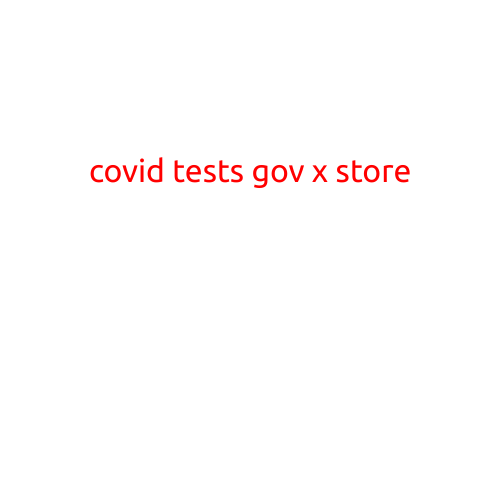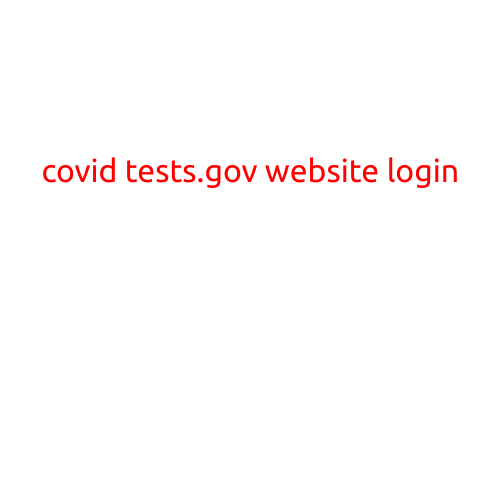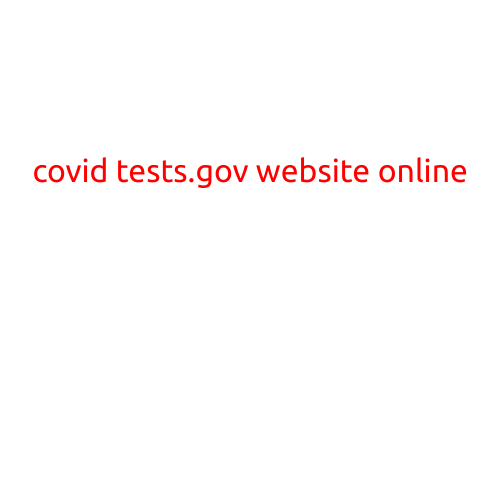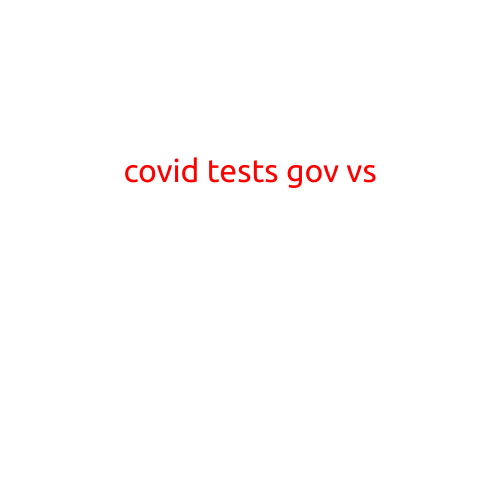
COVID-19 Tests: What You Need to Know
Video: Covid Tests - Government Info
As the COVID-19 pandemic continues to spread, it’s essential to understand the different types of tests available to diagnose the virus. In this article, we’ll delve into the world of COVID-19 tests, explaining what they are, how they work, and what you can expect from the testing process.
What are COVID-19 tests?
COVID-19 tests, also known as SARS-CoV-2 tests, are designed to detect the presence of the SARS-CoV-2 virus in an individual’s body. These tests can identify if you have the virus, even if you’re not showing symptoms. There are several types of COVID-19 tests, including:
- Rapid antigen tests: These tests detect the presence of viral proteins in your body. They’re quick, taking around 15-30 minutes to produce results.
- Molecular tests: These tests detect the genetic material of the virus, using a sample of your respiratory secretions (e.g., saliva, mucus).
- Antibody tests: These tests detect the presence of antibodies in your body, which are produced in response to infection.
- Serology tests: These tests detect the presence of antibodies in your blood, which can help diagnose if you’ve had COVID-19 in the past.
How do COVID-19 tests work?
The testing process typically involves the following steps:
- Specimen collection: A healthcare professional will collect a sample of your respiratory secretions, usually by swabbing the inside of your nose or throat.
- Sample preparation: The collected sample is then sent to a laboratory for analysis.
- Testing: Laboratory technicians use specialized equipment and reagents to analyze the sample.
- Results: Once the test is complete, the results are typically reported as “positive” or “negative.”
What to expect during testing
When you undergo COVID-19 testing, you can expect the following:
- A healthcare professional will explain the testing process and answer any questions you may have.
- You may feel mild discomfort during the specimen collection process, such as a slight tickle in the back of your throat.
- The entire testing process should take around 15-30 minutes to an hour to complete.
- You may be asked to wait for 10-15 minutes after the test to receive your results.
Frequently Asked Questions
Q: Do COVID-19 tests guarantee accurate results? A: While COVID-19 tests are designed to detect the virus with high accuracy, they’re not 100% foolproof. In some cases, results may be false positives or false negatives.
Q: How long do COVID-19 tests take to produce results? A: The time it takes to receive test results varies depending on the type of test and the laboratory processing time. Rapid antigen tests can produce results in as little as 15 minutes, while molecular tests may take several hours or days.
Q: Who should get tested for COVID-19? A: Anyone with symptoms of COVID-19, such as fever, cough, or shortness of breath, should be tested. Additionally, individuals who have been in close contact with someone confirmed to have COVID-19 should also be tested.
Conclusion
COVID-19 tests play a critical role in diagnosing and controlling the spread of the virus. By understanding the different types of tests available and what to expect during the testing process, you can take empowered steps to protect yourself and your loved ones from COVID-19.
Watch this video: Covid Tests - Government Info for more information on COVID-19 tests, including government-approved testing protocols and expert explanations of the testing process.
Stay informed, stay safe!





